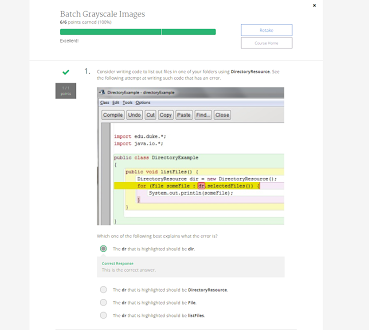If Your AI Isn't Responsible, It Isn't Successful
If Your AI Isn't Responsible, It Isn't Successful
Artificial intelligence is quietly reshaping our world, from predicting traffic on our morning commute to recommending our next favorite TV show. As AI becomes more deeply integrated into our lives, technologies that aren’t AI-enabled can start to feel inadequate, like a phone that can’t connect to the internet. But as these systems grow more powerful, a critical question emerges: Who ensures they are fair, safe, and beneficial for everyone?
The answer lies in Responsible AI, an essential framework for navigating the complexities of this transformative technology. This isn't just an abstract ideal; it's a practical necessity for anyone building or using AI today. This post will explore why responsible AI is critical, what it looks like in practice, and how to build a culture of responsibility at every stage of development.
The Double-Edged Sword: AI's Promise and Peril
AI systems are developing at a blistering pace, enabling computers to see, understand, and interact with the world in ways that were science fiction just a decade ago. However, we must remember that AI is not infallible. Technology is often a mirror reflecting the society that creates it.
Without intentional, ethical practices, AI can absorb and replicate existing human biases, amplifying societal issues on a massive scale. A model trained on biased historical data will inevitably produce biased outcomes. This is the core challenge: harnessing AI's immense potential while mitigating its inherent risks.
Defining the Indefinable: What Is Responsible AI?
Here’s where things get tricky. There is no universal, one-size-fits-all definition of responsible AI. You won't find a simple checklist or formula to follow. Instead, leading organizations are developing their own AI principles that reflect their unique mission, values, and the specific needs of their users.
The Four Pillars of Responsible AI
While the exact implementation varies, a clear consensus has emerged around a core set of ideas. If you examine the principles of different organizations, you will find a consistent commitment to four pillars:
Transparency: Understanding how an AI system makes its decisions.
Fairness: Ensuring that AI systems do not create or perpetuate unfair bias.
Accountability: Establishing clear lines of responsibility for the outcomes of AI systems.
Privacy: Protecting user data and ensuring it is used responsibly.
These pillars serve as a compass for navigating the tough ethical questions that arise during AI development.
The Human Element: People Are the Ghost in the Machine
A common misconception is that AI involves machines making autonomous decisions. The reality is that people are the central decision-makers at every single stage. Human choices are threaded throughout the entire AI lifecycle:
People collect and label the data the model is trained on.
People design the model's architecture and define its goals.
People decide how the AI will be deployed and applied in a given context.
Every time a person makes one of these decisions, they are injecting their own values and perspectives into the system. This means that every step—from initial concept to long-term maintenance—is an ethical checkpoint that requires careful consideration. Responsible AI isn't just for obviously controversial use cases; even a seemingly innocuous application can have unintended negative consequences if not developed with care.
The Business Imperative: Why Responsible AI Equals Successful AI
Embracing ethics and responsibility isn't just about "doing the right thing"—it's a fundamental component of building successful and sustainable technology. At Google, we've learned that building responsibility into any AI deployment from the ground up leads to better, more effective models.
More importantly, it builds trust. Customers and users need to trust that the AI systems they interact with are safe, fair, and working in their best interests. If that trust is broken, AI deployments can be stalled, unsuccessful, or, at worst, cause real harm to the people they are meant to serve. This leads to a simple but powerful equation: Responsible AI = Successful AI.
Putting Principles into Practice: A Look at Google's Framework
While principles are essential, they are only a starting point. To be effective, they must be supported by robust processes that people can rely on. Even if individuals don't agree with every single decision, they can trust the process that led to it.
Google's approach is guided by three core AI principles that govern our research, product development, and business decisions.
Google's Three Core AI Principles
Bold Innovation: We develop AI that assists, empowers, and inspires people. The goal is to drive progress, enable scientific breakthroughs, and help address humanity’s biggest challenges.
Responsible Development and Deployment: We recognize that AI is an emerging technology with evolving risks. We are committed to pursuing AI responsibly throughout the entire lifecycle, from design and testing to deployment and iteration.
Collaborative Progress, Together: We build tools that empower others to harness AI for individual and collective benefit, fostering an ecosystem of responsible innovation.
Crucially, these principles don't provide easy answers. They are a foundation that forces us to have hard conversations and establishes what we stand for, what we build, and why we build it.
Final Thoughts: Principles as a Compass, Not a Map
The power of artificial intelligence comes with a profound responsibility. This responsibility is not an afterthought or a box to be checked; it is a human-driven commitment that must be woven into the fabric of every AI project. By establishing clear principles and trusting in a robust process, we can guide the development of AI to be more beneficial, fair, and ultimately, more successful for everyone.
How is your organization approaching AI? Start the conversation about building your own responsible AI principles today.


Comments
Post a Comment